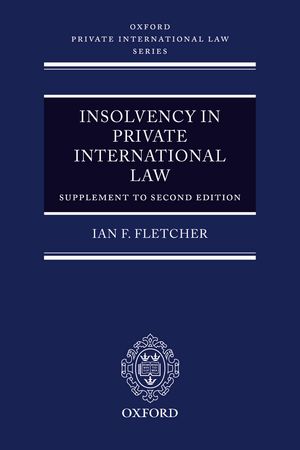
Insolvency in Private International Law Main Work
Insolvency in Private International Law Supplement
The supplement to the second edition of Insolvency in Private International Law covers the key developments in case law and legislation in the subject up to October 2006, and is an essential purchase for all who have already bought the main work.
The main work deals with the problems generated by those cases of insolvency (either of an individual or of a company) where the presence of contacts with more than one system of law brings into operation the principles and methods of private international law (also known as conflict of laws).
Part I of the main work is mainly devoted to an examination of the body of rules and practice that has evolved in England during the course of the past two-and-a-half centuries, and surveys the current state of the law derived from a blend of statutory and case authorities. Contrasting approaches under a selection of foreign systems - principally Australia, Canada, France and the USA - are examined by way of comparison. There are up to date accounts of the circumstances under which insolvency proceedings can be opened in respect of debtors which are not primarily based in England, and of the grounds on which English courts will recognise foreign insolvency proceedings and give assistance to the foreign representative of the debtor's estate.
Part II of the main work explores the progress towards the creation of international arrangements to co-ordinate and rationalise the conduct of insolvency proceedings which have cross-border features, particularly where the debtor is capable of being subjected to concurrent proceedings in two or more jurisdictions. Central to the developments described in detail in this Part are the EC Regulation on Insolvency Proceedings, in force throughout the UK since May 2002, and the UNCITRAL Model Law on Cross-Border Insolvency, which was due for enactment in the UK.